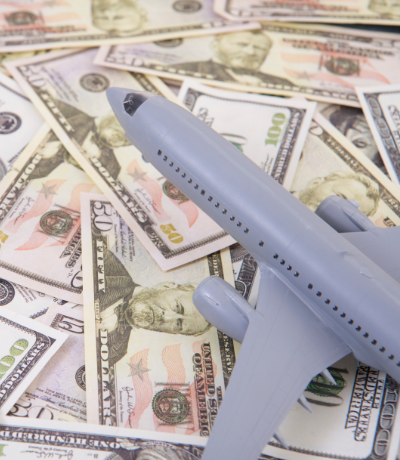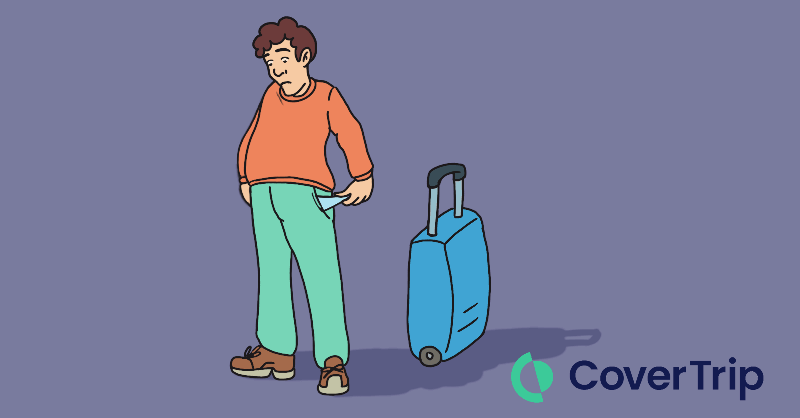How to avoid hidden airline fees
13 November 2021

Unwitting travelers constantly overpay for all kinds of things, often in the form of pesky fees. Fees that are hidden in the process of booking or snuck in when a traveler wants something ‘extra’.
When you book a flight, you pay for the cost in two parts: the face value of the ticket (this is often the lure that hooks you) and the fees. Sometimes, the sum of an airline ticket’s fees can cost more than the fare itself!
Make no mistake, airlines are constantly marketing their lowest ticket prices so they appear at the top of travel searches. Knowing about the hidden fees, what airlines have them, and how to get around them can help you plan better for your next flight.
Note: Most airlines have eliminated change fees on most fares thanks to the pandemic, so change fees are not included in this list.
Here are the sneakiest airline fees and how to get around them.
Booking over the phone
Speaking to a person to book your flight will cost you. Many airlines charge a fee to book a flight over the phone or in-person. Booking your tickets with an agent on the phone can cost you an extra $25-$35 per ticket.
Tip: Allegiant Air, Frontier Airlines, and Spirit Airlines even charge customers to book through their website. The fee is called an Electronic Carrier Usage Charge or a Carrier Interface Charge and it can cost you an extra $4 – $21 per person.
How to get around it: If online booking isn’t your thing, and you want to speak with a person, try working with a travel agent. They can do the research and you can talk with them over the phone or in person.
Choosing your seat
Many airlines now charge passengers a fee to select their seat in advance. Spirit Airlines starts charging at $5 and you’ll pay more for a window, aisle, or extra legroom seat.
Seat selection fees are most often found on budget airlines and basic economy flights.
How to get around it: Choose to fly a class above basic economy or fly on an airline that lets you sit anywhere, like Southwest. Although be wary of Southwest’s new early bird check-in which lets travelers choose their place in line to board the plane and amounts to the same outcome as paying to choose your seat.
Using loyalty points
This one is most irking because travelers should be rewarded for loyalty. In some situations, airlines charge customers to redeem and use their frequent flyer miles. You may pay a fee to book a miles flight using the help of an agent or when you’re booking a flight that’s coming up soon. American and United charge $75 to book a flight with miles when the flight is less than 21 days out.
Some airlines will also charge a fee to cancel a ticket booked with miles.
How to get around it: Book your flights with miles early and do it online yourself. Watch out though: Spirit charges a fee for tickets booked more than 180 days prior to departure if you’re using miles.
Checking luggage
Long gone are the days of free checked bags (except if you fly on Southwest) and the price to check a bag can add to the overall cost of your ticket.
How to get around it: Select a first- or business-class ticket or use an airline credit card to book your flight. Many airline credit cards include free checked luggage as a perk.
Carry-on bags
Not all airlines let you bring one carry-on bag for free, but it typically depends on the type of ticket you purchased and the size of the bag. American Airlines and United, for example, changed the rules for basic economy passengers. You’ll pay an extra $25 for each full-sized carry-on bag (essentially any luggage that will only fit in the overhead bin).
Carry-on fees are most often found on budget airlines and basic economy flights.
How to get around it: Select a fare above basic economy or pack very lightly.
Food and beverages
Traditionally, airlines offered passengers complimentary non-alcoholic drinks in economy class and charged extra for the booze. Some carriers now charge even for non-alcoholic drinks.
Again, free drinks usually cost extra on budget airlines like Frontier and Spirit.
How to get around it: Bring your own snacks and refillable water bottles. Initially, they’ll take up space in your carry-on but at least you’ll save some cash.
Airline fees are a constantly changing headache and they’re here to stay because they make the airlines billions of dollars every year. We didn’t cover all the fees here either. If you want Wi-Fi, water, or even a pillow on some airlines that will cost you extra. Savvy travelers take advantage of the ‘a la carte’ approach by both understanding and opting out of the more ludicrous fees.
Other interesting news
- Stuck in transit? The US airlines most likely to delay or cancel your flight, according to a new study.
- Faster and cleaner – United Airlines just announced a major step toward supersonic flights, slicing international trip time in half and cutting emissions at the same time.
- Travel sized. Brilliant travel hack that lets you carry your favorite perfume without the bulky bottle.
- Are they worth it? Here are 10 travel memberships that are worth the money for every type of traveler.
Damian Tysdal is the founder of CoverTrip, and is a licensed agent for travel insurance (MA 1883287). He believes travel insurance should be easier to understand, and started the first travel insurance blog in 2006.
